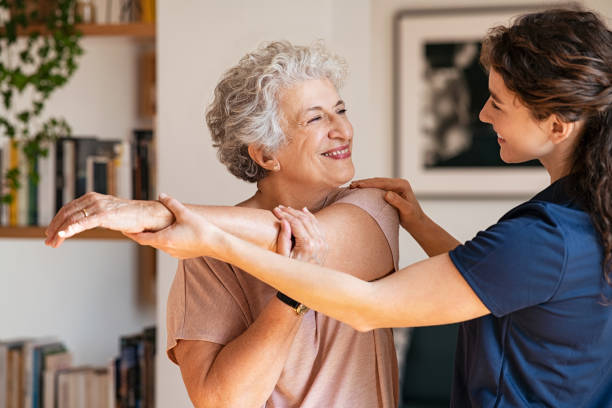
Balance and Aging: Preventing Falls in Older Adults
As we age, maintaining balance and preventing falls becomes increasingly important. Falls are a leading cause of injury among older adults, often resulting in fractures, hospitalizations, and a decline in overall quality of life. However, with the right strategies and support, falls can be significantly reduced. This blog post explores the importance of balance in aging and provides practical tips to help older adults prevent falls and stay safe.
Understanding the Importance of Balance
Balance is the ability to maintain a controlled body position during task performance, whether you are moving or stationary. Good balance is crucial for everyday activities such as walking, climbing stairs, and getting in and out of chairs. As we age, several factors can contribute to a decline in balance, including:
- Muscle Weakness: Muscle strength tends to decrease with age, impacting the ability to maintain stability.
- Joint Stiffness: Reduced flexibility and joint stiffness can limit movement and affect balance.
- Sensory Changes: Aging can affect vision, inner ear function, and proprioception (the sense of body position), all of which are vital for balance.
- Chronic Conditions: Conditions such as arthritis, diabetes, and neurological disorders can impair balance and coordination.
Tips for Preventing Falls
-
Stay Physically Active
Regular physical activity is one of the most effective ways to improve balance and prevent falls. Exercise helps maintain muscle strength, flexibility, and coordination. Consider incorporating the following into your routine:
- Strength Training: Exercises such as leg lifts, squats, and resistance band workouts can strengthen muscles and support balance.
- Balance Exercises: Activities like standing on one foot, heel-to-toe walking, and tai chi can enhance balance and stability.
- Flexibility Exercises: Stretching exercises, such as yoga, can improve joint flexibility and reduce stiffness.
-
Get Regular Health Check-Ups
Regular check-ups with your healthcare provider can help identify and manage health issues that may affect balance. Important aspects include:
- Vision and Hearing Tests: Ensure your vision and hearing are regularly checked and corrected if necessary.
- Manage Chronic Conditions: Work with your healthcare provider to manage chronic conditions that can impact balance.
- Monitor Bone Health: Assess and address bone health to reduce the risk of fractures in case of falls.
-
Review Medications
Some medications can cause dizziness, drowsiness, or low blood pressure, increasing the risk of falls. Therefore, It’s essential to:
- Consult Your Doctor: Review all medications with your healthcare provider to identify any that may contribute to balance issues.
- Adjust Dosages: If necessary, your doctor can adjust dosages or prescribe alternative medications with fewer side effects.
Preventing falls in older adults is crucial for maintaining independence and quality of life. By staying active, reviewing medications, making home modifications, wearing proper footwear, and getting regular health check-ups, older adults can significantly reduce their risk of falls.
If you or a loved one is concerned about balance and falls prevention, get in touch with Pivotal Motion’s Physiotherapy and Exercise Physiologist team today. Our team will be able to discuss with you in more depth on how we can help you. Book online or call us on 3352 5116.







